INTEREST RATE
The percentage of the mortgage loan charged by the lender for use of the lender’s money. In Canada, this mortgage rate is compounded semi-annually, or twice per year.
INTERIM FINANCING
Also known as a bridge, interim financing is a second mortgage that is paid of immediately following the closing date of the buyer’s current home. Interim financing is typically used when the sale of the buyer’s current home closes after the purchase of his or her new home closes.
JOB LETTER
A letter from your employer stating your length of employment, the guaranteed number of hours worked per week, and income amount.
LIABILITY
A financial obligation of an individual, such as credit card debt, car payments, mortgage payments, etc.
LICENSED MORTGAGE ASSOCIATE
A Licensed Mortgage Associate is the most common person within a brokerage to deal with clients. A Mortgage Associate will take clients’ applications on behalf of the brokerage, and walk them through the mortgage process.
LIEN
A claim against a property to secure the payment of a debt or other obligation.
LOAN
A borrowed amount of money that is generally repaid in full as well as with a certain amount of interest.
LOAN TO VALUE RATIO (LTV)
The ratio of the value of the mortgage loan to the appraised value or purchase price of the property (whichever is less). For example, if someone purchased a home for $100,000 and had $20,000 as a down payment, the mortgage would be $80,000, or 80% of the value of the home (therefore an 80% LTV).
LOANS OFFICER
A loans officer is an employee of a lending institution that functions as the liaison between that lender and its customers that are applying for a loan.
MARKET VALUE
The highest price a buyer would pay and the lowest price a seller would accept on a property. Market value could differ from the price that the property could be sold for at a given time.
MATURITY DATE
The date that your mortgage term ends. At this point, you can either pay off your mortgage or renew it.
MORTGAGE
To pledge a property to a lender as security on a loan.
MORTGAGE AFFORDABILITY
Mortgage affordability is the amount of money a mortgage borrower can make on a monthly basis towards a mortgage, based upon their income, expenses, and the proposed monthly payment.
MORTGAGE AMORTIZATION
Mortgage amortization is the process of repaying a mortgage loan.
MORTGAGE APPLICATION
The first step in obtaining financing for a real estate purchase.
MORTGAGE BALANCE
A mortgage balance is the full amount owed at any period of time during the duration of the mortgage and is the sum of the remaining principal owing and accrued interest.
MORTGAGE BROKER
A mortgage brokerage must employ a mortgage Broker to oversee the brokerage employees. Generally, Brokers are responsible for the management role within the brokerage. They are also responsible for ensuring that the brokerage complies with the Real Estate Act. An individual must be a Licensed Mortgage Associate for two years before being eligible to become a Broker.
MORTGAGE BROKERAGE
A mortgage brokerage is a legal identity licensed to trade in mortgages. Mortgage Brokers and Licensed Mortgage Associates must be licensed under a brokerage.
MORTGAGE COMPANY
A mortgage company is a business with the principal activity of providing or servicing mortgage loans. A mortgage company may be a chartered bank, a credit union, a trusted company, or other financial institution providing mortgage loans.
MORTGAGE DEED
A mortgage deed is a document in which the mortgagor transfers an interest in real estate to a mortgagee for the purpose of providing a mortgage loan.
MORTGAGE HOLDER
A mortgage holder is an individual or entity who owns the mortgage loan that was extended to a homeowner and is the party entitled to enforce the terms of the mortgage.
MORTGAGE INSURANCE
This is insurance that is required for high-ratio mortgages. It protects the lender in the event that a borrower defaults on a mortgage. The three mortgage insurers in Canada are CMHC(Canadian Mortgage and Housing Corporation), Genworth, and AIG. Prior to the creation of CMHC, Canadians could not purchase a home without a 25% down payment.
MORTGAGE LEAD
A mortgage lead is a generic term referring to a potential mortgage borrower or a potential mortgage customer for a mortgage lender or mortgage broker.
MORTGAGE LENDER
A mortgage lender is an entity that provides financing for the purchase of the real estate.
MORTGAGE LIFE INSURANCE
This is insurance that pays off the mortgage in the event of death or disability. To read more about mortgage life insurance, please click here.
MORTGAGE LOAN
A mortgage loan is a loan secured by real estate owned by the borrower.
MORTGAGE PAYMENT
A mortgage payment is a periodic amount paid to a mortgage holder for repayment of a mortgage loan.
MORTGAGE PRINCIPAL
Mortgage principal is the outstanding balance of your mortgage.
MORTGAGE QUALIFICATION
Mortgage qualification is the process of applying for a mortgage, having a mortgage application underwritten, and submitting mortgage documents to a mortgage lender for review. The qualification is the standard by which the lender will lend money on a mortgage loan.
MORTGAGE RATE
Mortgage rate is the interest that a mortgage borrower will pay for money borrowed against a mortgage.
MORTGAGE REFINANCING
Mortgage refinancing is the process of replacing your mortgage or mortgages on your property with a new mortgage.
MORTGAGE RENEWAL
A mortgage renewal is a new agreement to extend or renew mortgage terms with your mortgage holder.
MORTGAGE STATEMENT
A statement received from your mortgage lender that includes such information as property address, outstanding principal balance, monthly payment, interest rate, mortgage term, etc.
MORTGAGE TERM
A mortgage term is the length of time, usually in years, in which the parameters of a mortgage have a legal effect.
MORTGAGEE
The party that advances the funds for a mortgage loan; the lender.
MORTGAGOR
The party that uses their home as security for a mortgage; the borrower.




